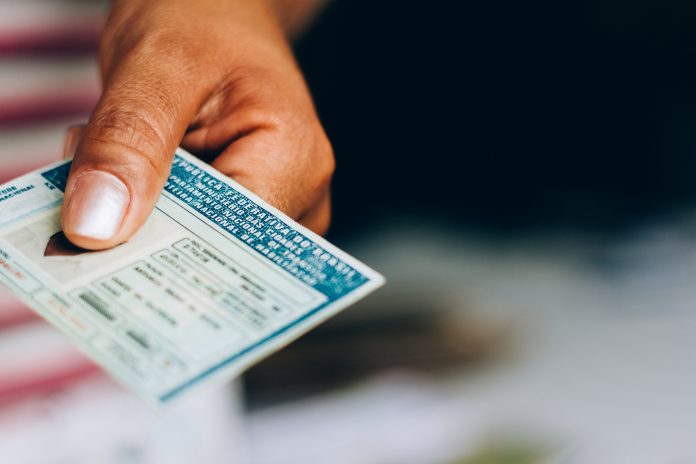By Tim Gruver
The COVID-19 pandemic has made finding a job harder than ever, and Washington lawmakers are once again debating how to lower the costs of being licensed for one.
The National Council on State Legislatures reports roughly a quarter of the U.S. workforce was licensed to do a job in 2015, compared to just 5% in the 1950s.
Washington’s Department of Licensing (DOL) regulates professions ranging from architects and cosmetologists to real estate brokers and bus drivers. Licensing requirements vary by industry and involve everything from college-level coursework to a simple exam and come at the cost of thousands in fees.
To date, Washington is second to Louisiana for the most occupational licenses for low- and middle-income workers, according to an analysis by the Institute for Justice, based on Bureau of Labor Statistics data.
Four bills sponsored by state Rep. Brandon Vick, R-Vancouver, aims to change that, as he told his colleagues on the House Consumer Protection and Business committee on Monday.
“What the bills do is really make our existing law and our existing regulations a little better for our workers and our folks seeking work,” Vick said. “These are thoughtful bills that take our current policy and make it just a little easier for the average consumer to experience.”
House Bill 1400 would task the DOL with issuing “competency-based” licensing requirements based on any mix of out-of-state training, testing, and experience.
House Bill 1401 would further have the DOL expedite licenses and certificates for out-of-state workers by granting them a temporary license while they complete skills assessments to determine their general competency.
The bill aims to level the playing field between low-income and higher-paid workers. To date, the Washington State Bar Association does not require out-of-state attorneys to pass the state bar exam.
In relation, House Bill 1402, would keep the state from regulating unlicensed professions unless it had to do with the health, welfare, and safety of the public.
A commonly cited study by economics professor Morris Kleiner at the University of Minnesota estimates occupational licensing cost the U.S. economy as many as 2.85 million jobs per year, costing consumers up to $203 billion.
For Washington’s approximately 17,000 prisoners who risk seeing release into a COVID-ravaged state economy with a current 6.3% jobless rate, House Bill 1399 would let prisoners submit job applications while incarcerated to size up their eligibility before spending time working toward a license or degree. Licensers could reject formerly incarcerated applicants only if their crime was related to the job in question.
The need for occupational licensing has been brought into question across party lines by critics who say licenses can stifle competition and discriminate against entry-level workers.
To date, only Arizona, Idaho, Montana, New Jersey, and Pennsylvania have enacted bills requiring occupational boards to allow workers with out-of-state licenses to receive a license to practice, with some restrictions.
Joe Kendo, government affairs director for the Washington State Labor Council, testified against HB 1400 and 1402 on Monday, saying they would outsource safety standards to other states to decide and favor out-of-state workers.
“This bill would effectively adopt other states’ standards for consumer protection and safety,” Kendo said. “We believe that new licenses should be established based on the most protective standards for the public, and not the least restrictive for licensees or for businesses.”
A 2015 report by the Obama administration noted that low-income workers were less likely to afford the tuition and lost wages associated with licensing educational requirements. It also noted immigrants are often required to repeat costly license requirements to get a U.S. job license.
The Obama administration’s report further showed occupational licenses did little to promote competency, as most state licensing boards based their standards on consumer complaints and third-party reports to monitor practices.
Todd Meyers, an analyst with the Washington Policy Center, testified in favor of the bills on Monday, arguing they would not close the door to high safety standards.
“This is not a case of other states setting the standards for us,” Meyers said. “It is a situation with Washington state determining whether others meet those standards.”
In 2020, Washington was among 18 states to waive state licensing for health care workers under the Uniform Emergency Volunteer Health Practitioner Act, which allows states to recognize out-of-state medical licenses in a declared emergency like the COVID-19 pandemic.
Originally published by The Center Square. Republished with permission.











